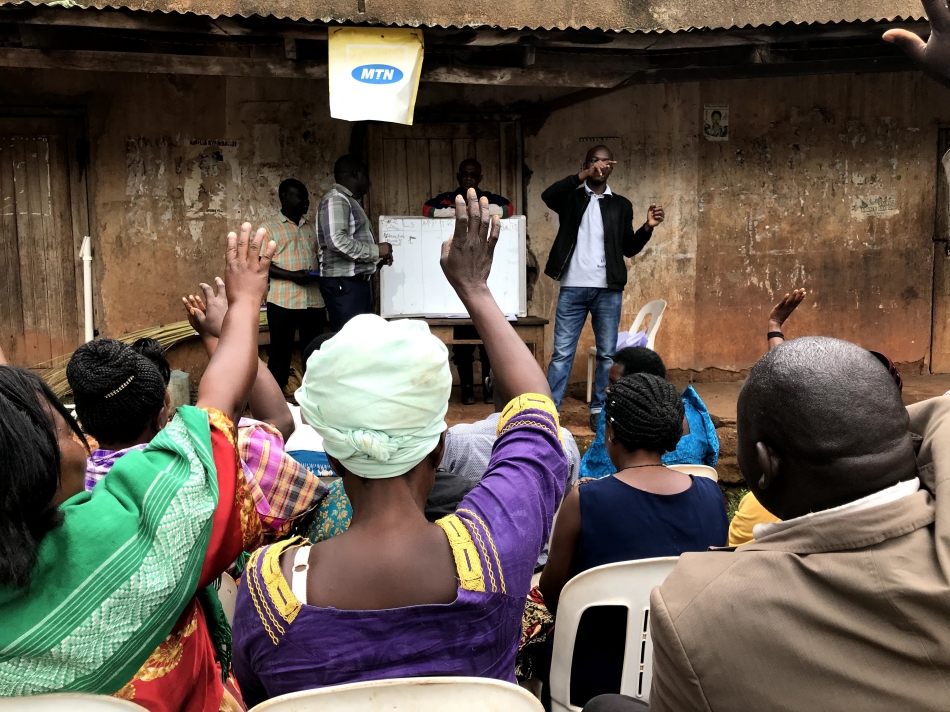23/03/2021 Farmer Field Schools (FFS), or ‘schools without walls’, were introduced by FAO and partners more than 30 years ago as an alternative to the prevailing top-down extension approach. The schools are a way to promote field-based experimentation, group organization and local decision-making through discovery-based learning.
Farmer Field Schools have been a success across Africa, and as a result, demand continues to grow. In Kenya and Uganda, for example, the approach has been, or is being, institutionalized in national extension policies and systems, and other countries have indicated an interest in doing the same.
The popularity and spread of this way of learning has posed some issues, namely maintaining the quality of implementation while scaling up, and ensuring links between field-level practice, policy, and strategic development.
In response to this need, the FAO Subregional Office for Eastern Africa developed a project to mainstream FFS into the curricula of higher learning institutions.
By integrating the FFS methodology into universities’ agricultural extension curricula, countries can train current extension agents or mould future agents to become well versed FFS facilitators and master trainers. These extension specialists lead farmers through a season-long learning cycle.
The institutionalization of FFS in university curricula guarantees that there is a consistent flow of graduates with the skills to transform smallholder farmers into better agribusiness-minded producers. In the long term, this will have a significant impact on national food security and sustainable development.
Turning ideas into action
The initiative has built capacity within national public structures, and transformed dependence on external organizations to provide FFS capacity development into governments’ homegrown ability to deliver enhanced agricultural extension and advisory services.
This represents a paradigm shift that bridges the space between the ministries of agriculture and education. Now, the groundwork is there to systematically develop the capacities of the future corps of extension agents. No doubt it will advance the education, research, and outreach pillars of higher learning institutions to make meaningful contributions to achieving the Sustainable Development Goals including Zero Hunger.
More than 40 professors, lecturers, and government staff across Ethiopia, Kenya and Uganda have been trained as FFS facilitators or master trainers. Thanks to this initiative, the participating universities are now offering degree, diploma and certificate courses on FFS.
A key component in each country is establishing community outreach sites, where the newly-trained university and government staff lead their own FFS groups through the season-long learning. The farmers have honed their production skills and learned about non-agricultural topics such as gender norms, HIV/AIDS, reproductive health and financial management.
A recipe for upscaling
The integration of FFS in higher learning institutions is considered necessary for sustaining the quality and scalability of programmes at the national level. Past efforts were mainly ad hoc and emerged as project spin-offs but under this initiative, attention focused on facilitating a systematic process for FFS institutionalization in selected universities across Eastern Africa to ensure quality programme implementation.
The scale-up of the institutionalization process for FFS presents an immense opportunity for the region’s countries. Additional universities in the three above-mentioned countries have already signalled their interest in adopting the approach. Several other countries in the subregion and beyond have also expressed their interest.
For the institutionalization process to be successful, an enabling environment is required where universities and other higher learning centres are convinced of the methodology and committed to seeing the process through to the end. Good communication and strong support from FAO are also critical success factors.
Learn more
Technical partners
Participating universities: Ethiopia: Hawassa University; Kenya: Pwani University; Uganda: Makerere University, Kyambogo University, Serere Agricultural College, Uganda Christian University, Busitema University, and Gulu University.
African Forum for Agricultural Advisory Services (AFAAS) and the AFAAS-managed
Eastern Africa FFS-Hub
Ethiopia: Ministry of Agriculture
Kenya: Ministry of Agriculture, Livestock and Fisheries
Uganda: Ministry of Agriculture, Animal Industry and Fisheries
